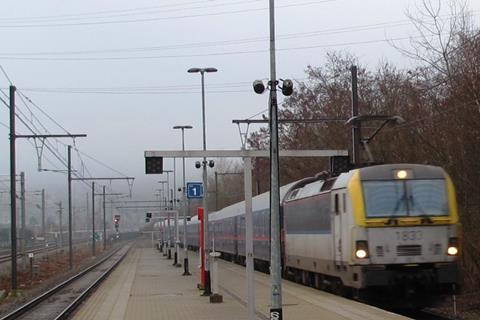
BELGIUM: The Council of Ministers has approved a draft law which aims to encourage the operation of attractively priced international night trains by offering reductions in infrastructure access charges and energy costs.
The high loadings on the thrice-weekly Nightjet service between Brussels and Wien show the potential for night trains, Minister of Transport Georges Gilkinet explained after the draft law was approved on November 10 and sent to the Council of State for its opinion.
‘The federal government would like Belgium to play a leading role in the development of more and faster international rail links between the major cities of Europe, with the particular ambition of making Brussels a real international rail hub’, he added.
‘Despite the enthusiasm of travellers, the international offer is still developing too slowly for the moment. It is therefore essential to offer this concrete support to all current and future European operators, to encourage them to develop the night train offer and provide a solid alternative to air transport.’
Gilkinet reported that there had been interest in overnight trains to Malmö and Praha, as well as to summer and winter holiday destinations. He wanted wants operators to know that they would be welcome in Belgium. ‘We hope that other states will follow us, thus providing an even more favourable framework for night trains’.
Initiative welcomed
The proposal was welcomed by Chris Engelsman, co-founder of European Sleeper which is aiming to launch a Brussels – Praha night train. He told Railway Gazette International that ‘European Sleeper highly appreciates the effective way in which the Belgian government implements a practical support measure.
‘We consider this proposal as a great example for other national governments, as it is open to all potential night train operators and does not violate open access legislation. The cost reductions will certainly benefit the business case for our new night train to/from Belgium, and it would obviously be even more effective if it would also serve as an example for other countries’.

















